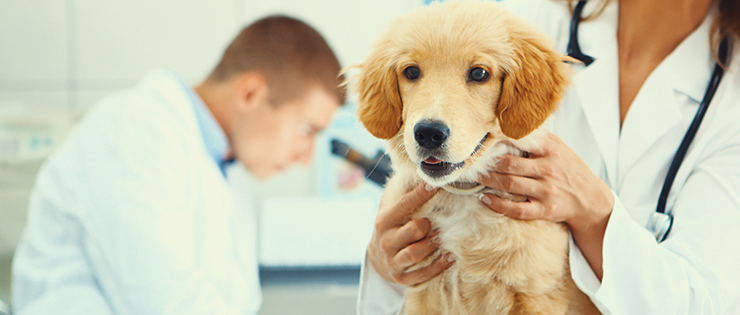
As we exist in a world that is increasingly holistic when it comes to health, the question of whether we should vaccinate our dogs continues to spark interest. This is a very personal issue that needs to be made responsibly by the dog owner. For me, I have always vaccinated my dogs, and plan to continue doing so. Vaccines consist of the agent that is similar to the microorganism we want to destroy. It stimulates the immune system to recognise the pathogen and activates our antibodies to fight it.
There are typically two types of vaccines for dogs in Australia. These are called Core and Non-core Vaccines. The most common core vaccine is the C3 vaccine (administered every 1-3 years, depending on exposure and lifestyle), which incorporates three different vaccines, namely for; distemper virus, canine adenovirus, canine parvovirus. Parvo is undoubtedly the most commonly known and arguably most devastating disease in dogs. The non-core vaccines (every 12 months) include protection against bordatella bronchiseptica (kennel cough), which is less commonly included these days, because even if your dog is vaccinated, they still may get the bacterial strain of kennel cough. In other words, your dog can still get sick.
There is no doubt that we all love our dogs, and we do what we believe is right for them. As a behaviourist, vaccinating your dog allows you to engage your dog in experiences that help them learn how to safely exist in a human world. Puppies need to explore different environments and naturally become exposed to a range of pathogens, that are harmful; possibly even fatal. The main issue I have with the strict vaccination regime, is that the 16-week vaccination often prevents owners from exposing their puppy to environments that are essential for the ‘critical period’.
There are ways that you can still engage your puppy in the world however, without risking their health and wellbeing. Taking them to friends’ houses with dogs who are healthy and vaccinated is a great way to help them socialise, as is puppy school (run by a reputable and qualified educational provider). Play music, fireworks and thunderstorm noises during their meal time. Expose them to different people and other animals through supervising them on your front yard and rewarding them for calm acknowledgement. There are a range of ways your puppy can learn about life without exposing them to dangerous diseases. Off lead parks in my opinion, are a definite ‘No No’ however!
Vaccinations do of course come with risks. These can include; breathing issues, diarrhoea, vomiting, general lethargy and weakness. More severe but rare symptoms include; anaemia, reproductive complications and sarcoma (in cats). Additionally, Parvovirus is more common in rural locations, compared to urban areas. Some arguments are made against vaccinations, in that they are not necessary, because suburban dogs are less commonly exposed to these pathogens. There is always a risk that comes with vaccinating. The risk to not vaccinate in my opinion however, is arguably more severe.
Parvo is easily transmitted and generally fatal, if not treated immediately. It can be spread from basic items such as footwear, bedding, food bowls and even food itself. Additionally, it can remain in the system for over 12 months, so regular boosters are required to prevent it. I have seen first-hand how devastating contagious diseases can be to dogs, believing the old adage that prevention is better than cure.
If you decide not to vaccinate your dog, please be mindful of the environmental risks your dog faces, and actively work towards preventing them from such exposure. A fallacy to this mindset is that it may prevent you from exposing your dog to the wonders of the world, through fear of risking their health. Taking the responsibility to ensure your dog is happy, healthy and full of life ultimately comes down to you. Sometimes, our belief system is not necessarily what is in the best interests of our dependents. This includes our dogs, who through no choice of their own, depend on us throughout their lives. We must always do for them, what is best for them. What do you believe that is?